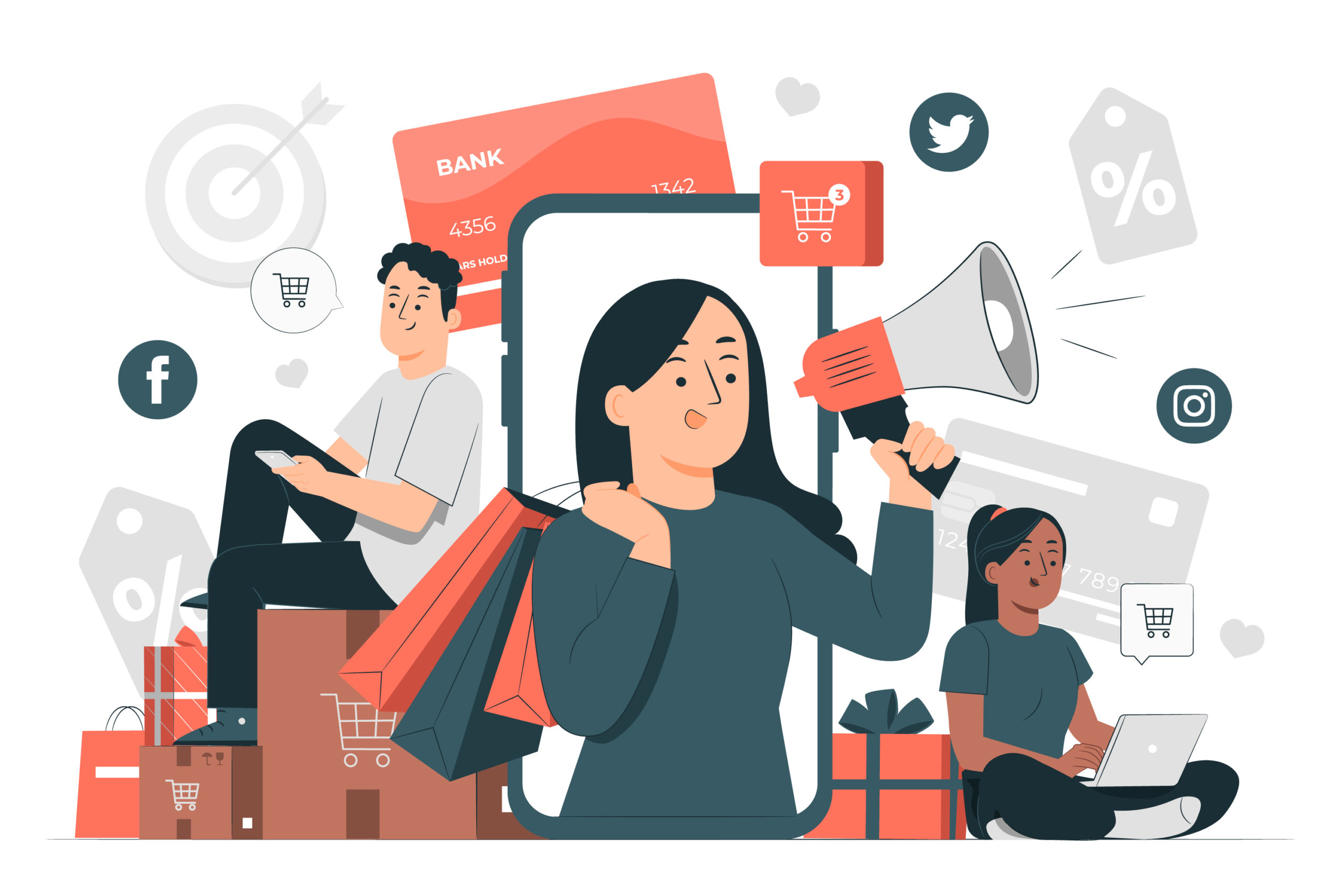7 Psychological Marketing Techniques Proven To Increase Sales
Play your cards right; you’ll be able to double, triple, or even quadruple your profits.
As a business owner, you want to do anything and everything in your power to boost your sales and generate as many returns as possible. A digital agency will definitely help, but first, you’ll need to learn about the human behavior of consumerism and how to effectively market your business. That’s where marketing psychology comes into play. Marketing psychology is the study of how psychological phenomena affect the way consumers select and purchase products. By understanding the basics of how psychological phenomena affect consumer behaviour, you can create campaigns that are more likely to resonate with potential customers and convince them to buy your product and/or services.
What psychological marketing techniques are most commonly used in digital marketing strategies (some may even help you gain customer loyalty in the long run!)? Let’s get right into it.
Table of Contents
Here are the 7 most common psychological marketing techniques that marketers use.

Understanding marketing psychology to create more effective marketing campaigns
Source: Freepik
The Decoy Effect
Understanding marketing psychology to create more effective marketing campaigns The decoy effect is a psychological phenomenon whereby people tend to make irrational decisions when presented with multiple options that include a clearly inferior option. This happens because our brains are hardwired to simplify complex decision-making processes by zeroing in on the differences between the options. In other words, we focus on the option most different from the others.
For example, let’s say you’re trying to decide between two vacation packages – Package A and Package B. Package A costs RM5000 and includes a week-long stay at a 5-star resort with all meals and activities included. Package B costs RM6000 and consists of a week-long stay at a 5-star resort with all meals and activities included, plus a helicopter tour of the island. Which package would you choose?
If you’re like the masses, you would choose Package A. Even though Package B is technically better (it has the same inclusions as Package A plus an additional activity), our brains focus on the fact that it costs RM1000 more. In other words, we see Package B as being too expensive and, thus, not worth our hard-earned money.
How to apply in your digital marketing strategy:
The decoy effect can be used in marketing by presenting customers with an option that is inferior to the others but not too different in price. This will make the other options seem more attractive in comparison.
Social Proof
Social proof is a psychological phenomenon whereby people tend to do what others are doing because they believe that everyone else is doing it too. In other words, we follow the herd mentality. This happens because we feel a need to conform to social norms and fit in with our peers.
For example, let’s say you’re at a party, and you see everyone else drinking beer. Even though you’re not a massive fan of beer, you would still drink it because everyone else is doing it, and you don’t want to stand out.
How to apply in your digital marketing strategy:
Feature testimonials, reviews, and ratings from other customers on your website and social media pages. This will incentivise potential customers to buy your product because they will see that others have already bought it and are happy with their purchase.
Reciprocity
People tend to do something for someone else after that person has done something for them first. In other words, we feel obliged to return the favour after someone has been nice to us.
For example, let’s say you receive a gift from a friend on your birthday. Even though you don’t really like the gift, you would still feel obliged to give them a present on their birthday because they were nice enough to give you a gift on your special day.
How to apply in your digital marketing strategy:
Reciprocity can be used in marketing by giving freebies like e-books, reports, and other digital products. Interested customers are more likely to buy your product because they will feel like they owe you something after you have given them something for free.
The Authority Bias
A commonly used psychological marketing trick is the Authority bias. People tend to trust and follow the recommendations of experts and/or people in positions of authority. This happens because we have been conditioned to believe that these people know what they’re talking about and are, therefore, more likely to be right.
For example, let’s say you’re trying to lose weight and see a diet plan on the internet that a certified nutritionist created. Even though you don’t know anything about the nutritionist, you would still be more likely to try their diet plan because they are an authority figure.
How to apply in your digital marketing strategy:
The authority bias can be used in marketing by featuring testimonials from experts and/or people in positions of authority on your website and/or social media pages. If your product or service has been endorsed by someone who has authority/is an expert in their field, audiences are more likely to engage.
The Bandwagon Effect
The bandwagon effect is when people tend to do something simply because everyone else is doing it. In other words, we jump on the bandwagon without really thinking about it first. This happens because we don’t want to miss out on what everyone else is doing, and we don’t want to be the odd ones out.
For example, let’s say all of your friends are going to see the new Marvel movie on opening night. Even though you’re not really interested in superhero movies, you would still watch it with them because you don’t want to miss out on what everyone else is doing.
How to apply in your digital marketing strategy:
The bandwagon effect can be used in marketing by creating a sense of urgency and/or scarcity around your product. This will increase the likelihood of potential customers buying your product because they will feel like they need to get it before it runs out or they miss their chance.
The Sunk Cost Fallacy
The need to continue investing in something simply because we have already invested so much in it. In other words, we feel like we need to see it through, even if it’s not really worth it anymore. This happens because we don’t want to admit that we made a mistake and/or we hate wasting money.
For example, let’s say you buy a gym membership, but you never actually go to the gym. Even though you’re not really getting anything out of it, you would still continue paying for it because you don’t want to admit that you wasted your money on something that you’re not using.
How to apply in your digital marketing strategy:
The sunk cost fallacy can be used in marketing by offering discounts to customers who have already made a purchase. This will make your target audience more likely to buy your product because they will feel like they need to use the discount before it expires.
The foot-in-the-door technique
The foot-in-the-door technique is a psychological phenomenon whereby people tend to comply with a small request because they have already complied with a similar, smaller request. In other words, we feel like we need to follow through on our commitment even if the original request was actually quite small. This happens because we don’t want to seem like we are not reliable or we cannot be trusted.
For example, let’s say you sign up for a free trial of a new product, but then you find out that the trial period is actually much longer than you thought. Even though you would rather cancel the trial, you would still continue using the product because you don’t want to seem like you can’t commit to something.
How to apply in your digital marketing strategy:
The foot-in-the-door technique can be used in marketing by offering free trials of your product to new customers. Potential customers are more likely to buy your product because they will feel like they need to use it before the trial period expires.

Influence consumer behavior with psychological marketing tactics that work
Source: Freepik
Do you recall any instances where you’ve been on the receiving end of these psychological marketing tricks and techniques? Marketing psychology and consumer behaviour may sound like a whole other ballpark, but it’s not as foreign as it seems. Speak to the pros (we’re not pulling the authority bias move on you) and learn how to create effective marketing campaigns to reach and engage with your target market. We are a digital agency based in Kuala Lumpur and our experts are actually certified digital marketing experts in paid media, SEO, and more.
Contact the best digital marketing agency in Malaysia and get started today.








Join the discussion - 0 Comment